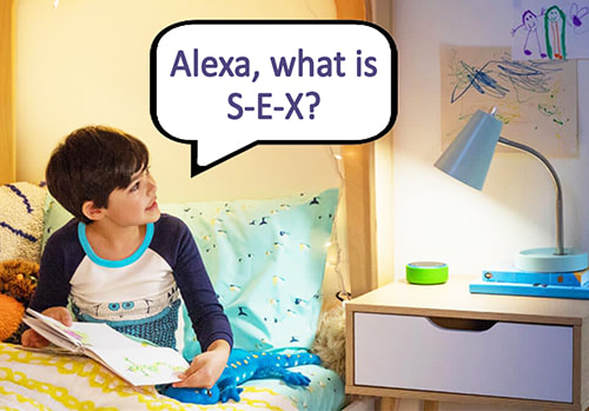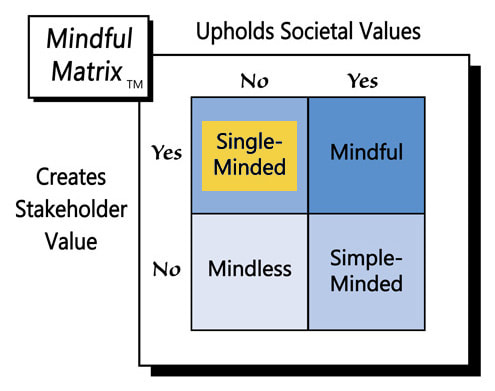Children are incredible imitators and adopters of the technology they see adults using. A few weeks ago, I was amazed at the savvy of a one-and-a-half-year-old I know. She isn’t old enough to talk, yet she knows how to swipe through photos on her grandpa’s smartphone.
Amazon introduced its Echo smart speaker with Alexa in November of 2014 to target adults. Since then, Alexa, Siri, and other voice assistants have begun making their way into more homes than Amway and Avon. According to TechCrunch, 16% of Americans, or about 39 million people own a smart speaker.
Voicebot breaks down those statistics further, reporting that nearly one out of every five adults has a smart speaker. It’s hard to believe that the market for such devices is already approaching saturation, which explains why a company like Amazon is looking at a new segment with less contested growth—children.
The ecommerce icon recently announced the addition of a smart speaker specifically made for kids: Echo Dot, Kids Edition. The newest addition to the Echo line will be available for sale May 9, 2018, for $79.99, or about $30 more than a regular Echo.
So, what makes the Echo Dot for tots kid-friendly and worth 37% more than the original? The device’s red, green, and blue color options certainly appeal to kids, but to penetrate the wallets of picky parents, this Echo definitely needs to do some different things, which it does. Here are several of the most notable tasks Alexa accomplishes for kids, all with flexible parental controls:
- Answers questions, reads stories, and tells age-appropriate jokes
- Plays music, including ad-free radio stations and Amazon music
- Plays Audible books
- Plays games from Disney, National Geographic, and Nickelodeon
- Calls kids for dinner or tells them it’s bedtime via other Amazon Echo devices
It’s worth noting that much of this content comes courtesy of a subscription to FreeTime Unlimited which is included for the first year, then costs $2.99 a month thereafter.
Those are some impressive offerings from a product that’s about the size of a hockey puck. Kids will likely love having their own Echo Dot, partly because they appreciate having ‘their own’ anything, but also because of all that this one does just for them. Meanwhile, parents who buy these Dots will come out looking like heroes, mainly because of the product’s vast capacity to entertain.
So, it seems like a win-win for kids and parents. At the same time, there’s something unsettling about a device doing so much for children. Maybe you’re asking yourself these same kinds of questions about the kids’ Echo Dot:
1. Will it make kids rude? One of the concerns people have had about voice assistants is that by catering so quickly to our demands, they’re turning us into a society of ingrates. Amazon has taken into account that potential by programming politeness recognition into the kids’ Dot. For instance, if children say “please,” the device will thank them for asking nicely.
Such positive reinforcement sounds good, but one has to wonder how long it will take kids to realize that by skipping the pleasantries, they’ll get the same information, more quickly.
2. Will it undermine interpersonal skills? Being polite is important, but even more critical communication skills could be at stake. What happens over time when talking to machines replaces talking to people?
Individuals have had similar concerns about teens texting. Under the age of 12, children are really refining their language, conversation, and social skills, which makes it all the more important that they are learning helpful interpersonal communication habits.
3. Will it present a privacy risk? In the wake of high-profile data breaches and the case of Facebook/Cambridge Analytica, privacy should be a priority for every adult. Keeping our kids safe is an even bigger concern.
BuzzFeed reports that Amazon “does not use data harvested from user actions to compile a back-end profile (often called a ‘shadow profile’) for marketing or other purposes.” Rather, Amazon claims that any such data use is simply to customize and enhance the user’s experience. It has to be getting harder for Amazon to resist the temptation to leverage information gleaned from Alexa to promote its retail sales, but at this point, we probably need to take the company at its word.
However, there are other potential privacy concerns, one of which is hacking. A few years ago, a couple of hackers succeeded in breaking into a Jeep Cherokee’s computer system and controlled a variety of the vehicle’s features from afar. In the Internet of Things, it’s scary to think of a similar breach happening in a five-year-old’s bedroom, with a mic that’s always on and listening.
Another privacy concern might come from a much closer yet less obvious source: the children’s own parents. According to Amazon’s website, parents can “monitor activity from the Amazon parent dashboard,” as well as hear what’s happening in their kids’ rooms via Echo Dots’ mics and speakers. That kind of monitoring may be important for babies or very young children, but as kids get older, they deserve to have some privacy in their personal space.
4. Will it become a parenting substitute? Each of the preceding points are worrying, but in many ways, this last one is the most concerning. Given everything that the kids’ Echo Dot does, will it put parents out of a job?
Of course, that question is an exaggeration, but it’s sad to think that children will soon be asking Alexa, not their parents, to read them stories, play games, and answer questions that often spur important conversations.
On one hand, this isn’t the first time technology has threatened to disrupt parent-child relationships (e.g., television, VCRs, DVD players); however, those earlier examples aren’t quite the same. The artificial intelligence and ‘human-like-ness’ of voice assistants put them on a different plane than any other consumer technology.
Amazon’s latest Echo Dot is in many ways an exciting new product that promises considerable utility in terms of education and convenience. These benefits, however, probably don’t outweigh the risks related to things such as reduced privacy and weakened relationships. For these reasons, we need to tell Alexa that the kids' Echo Dot is “Single-Minded Marketing.”
Learn more about the Mindful Matrix and Mindful Meter.
Check out Mindful Marketing Ads and Vote your Mind!




 RSS Feed
RSS Feed